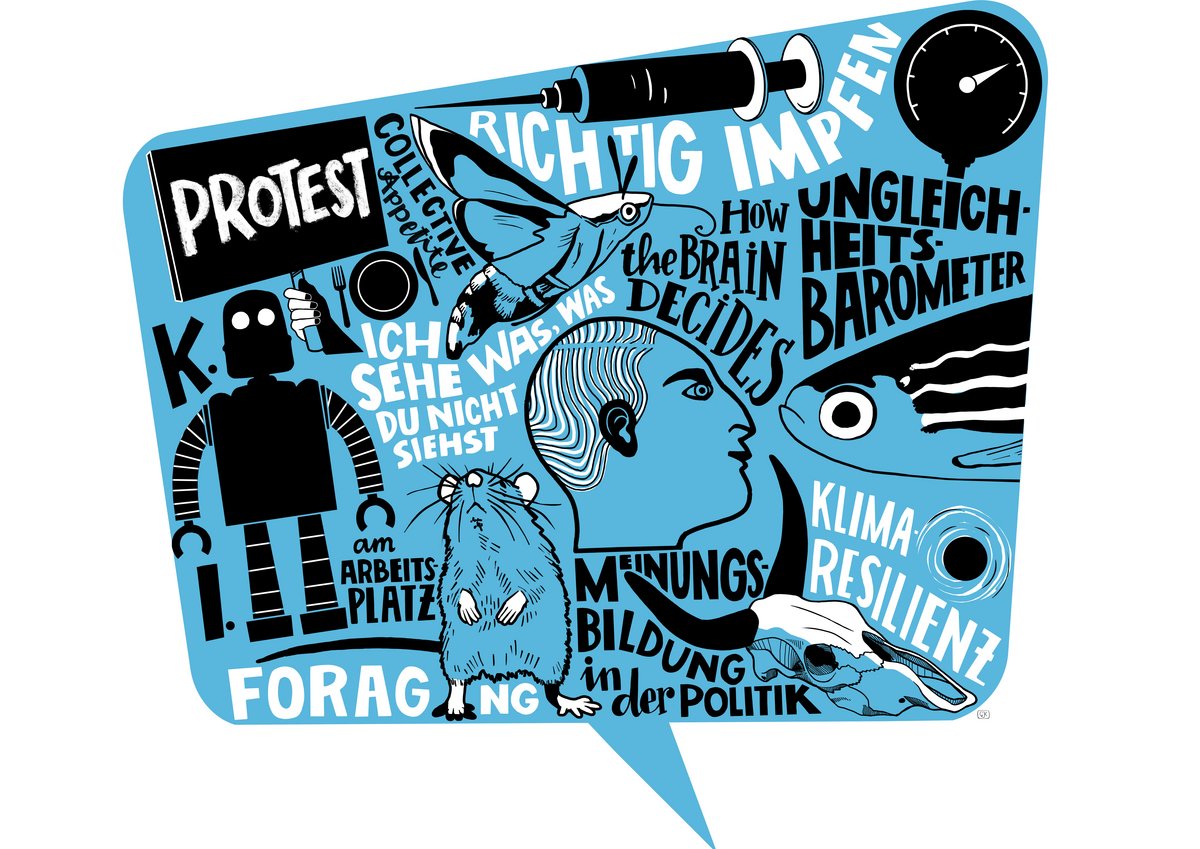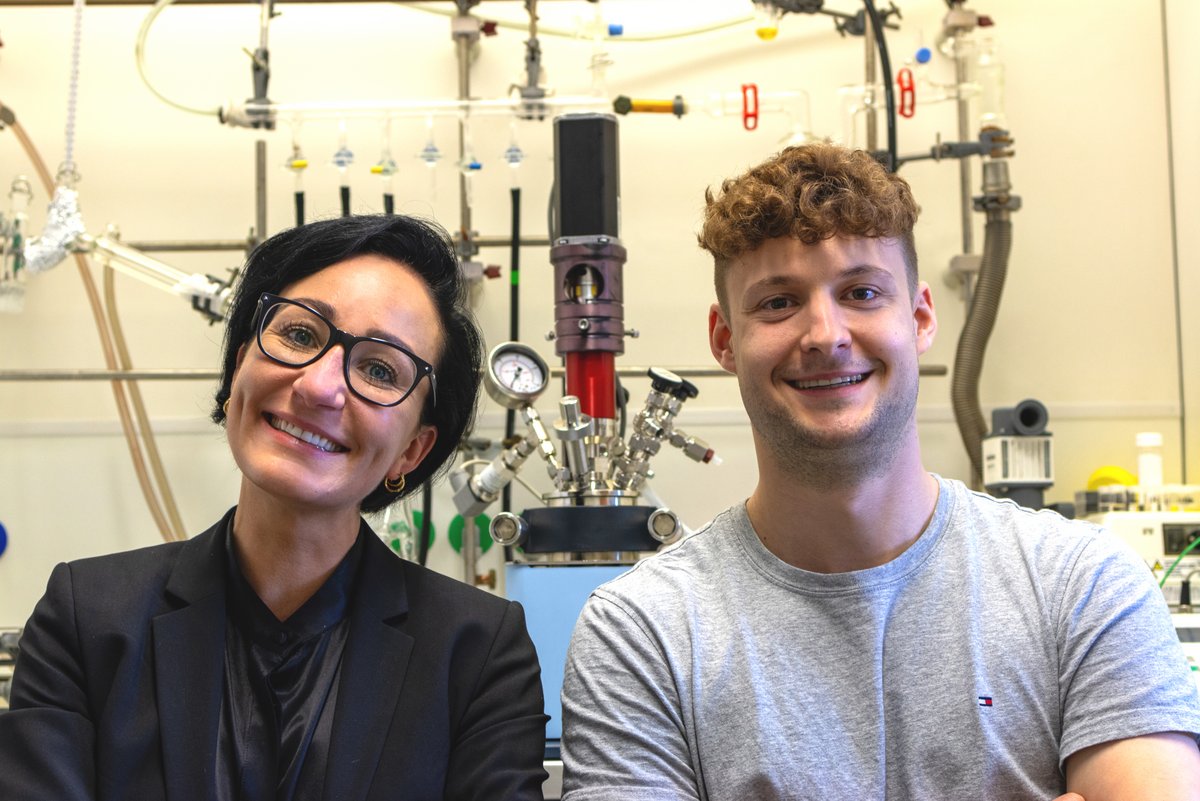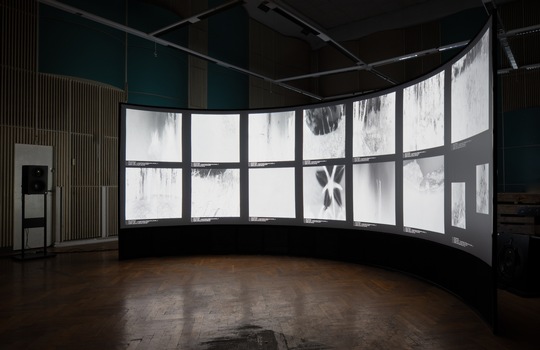
Exhibition: More than human worlds of perception
How do animals perceive the world? The exhibition by media artists Kristin Jakubek and Leon Brandt questions our human-centric view of the world and will be on display in the Bürgersaal Konstanz from 6-8 September 2024. Researchers from the Cluster of Excellence Collective Behaviour at the University of Konstanz supported the creation of the artwork with scientific research findings and will engage in a public exchange with the artists in a panel discussion on 6 September 2024 at 6 pm.
Read more
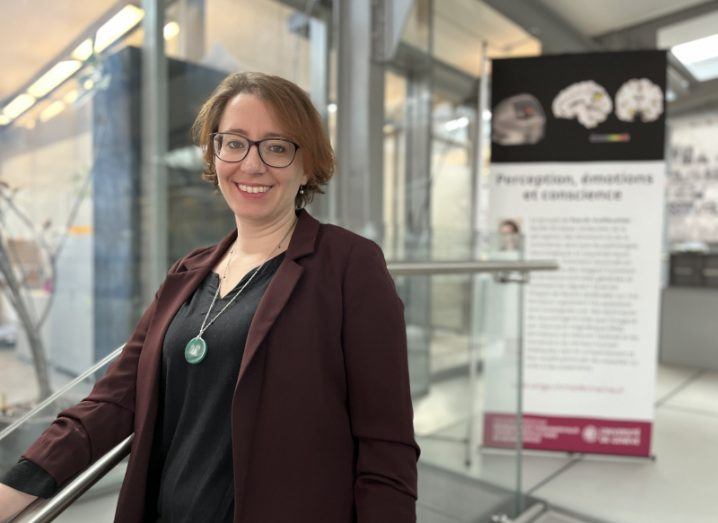
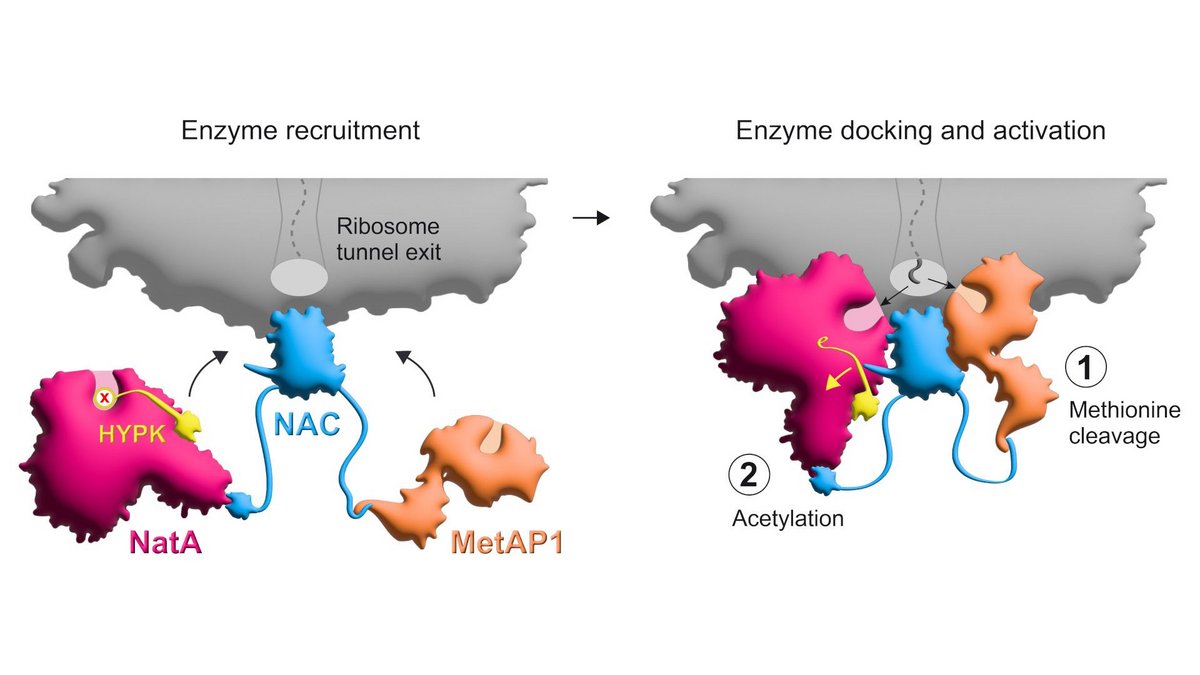
![[Translate to Englisch:] The South American lungfish has an eel-like, brownish-coloured body and a snake-like, yellow-spotted head.](/fileadmin/_processed_/0/0/csm_Lungenfisch_1280_14ee7ef238.png)
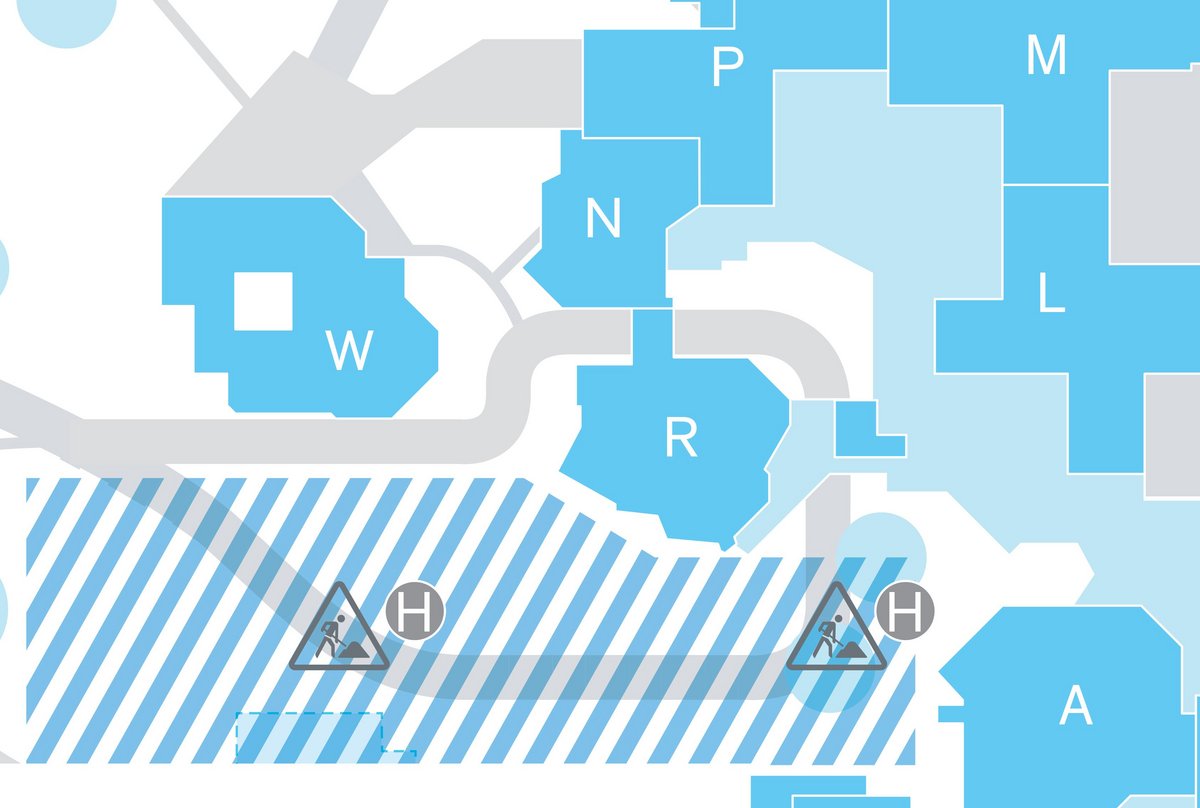
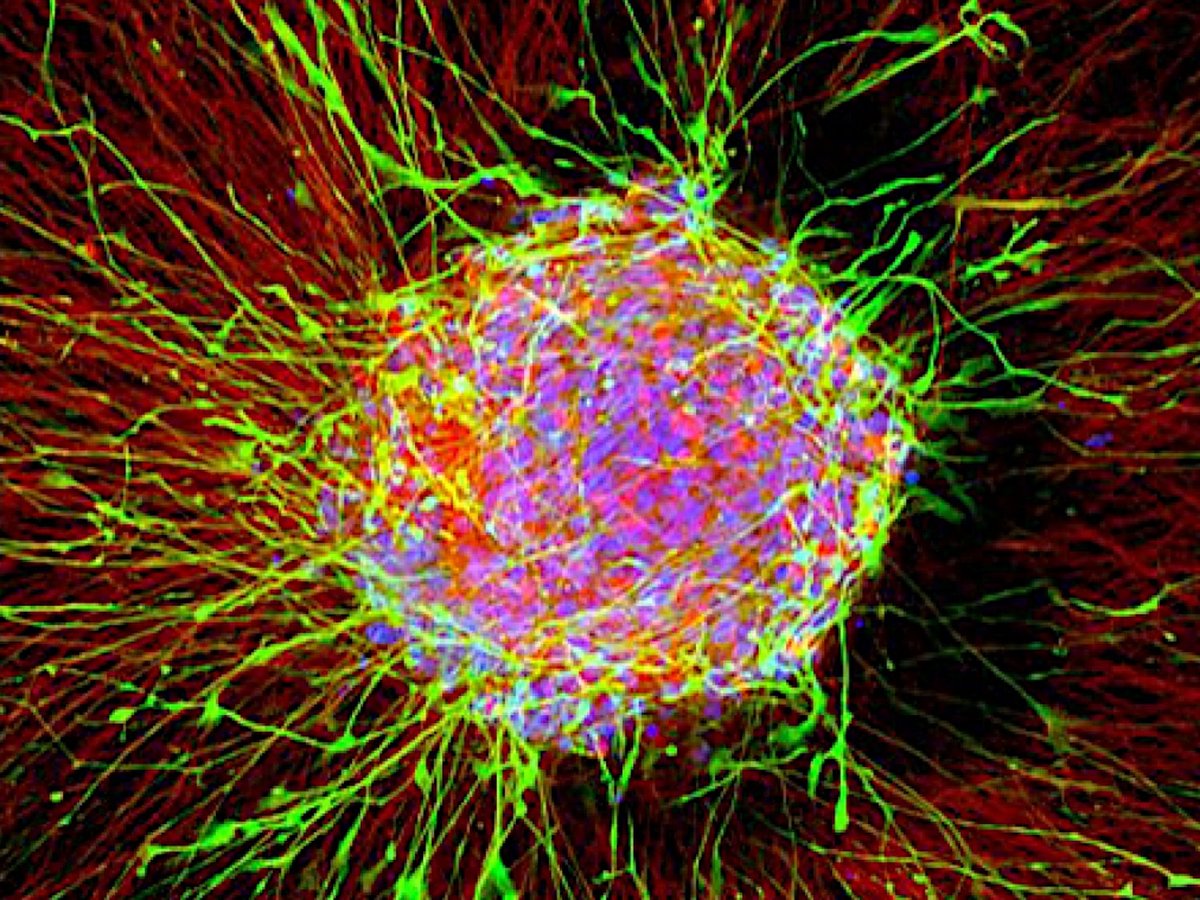
![[Translate to Englisch:] Rückansicht von Demonstrierenden. Eine Frau hält ein Plakat hoch in dem eine gesunde und eine kranke Erddarstellung zu sehen sind, mit dem Text "you decide"](/fileadmin/_processed_/2/d/csm_Zwischen_Wissen_Fridays_for_Future_pixabay__by_dmncwndrlch-1_b7ec424a15.jpg)
